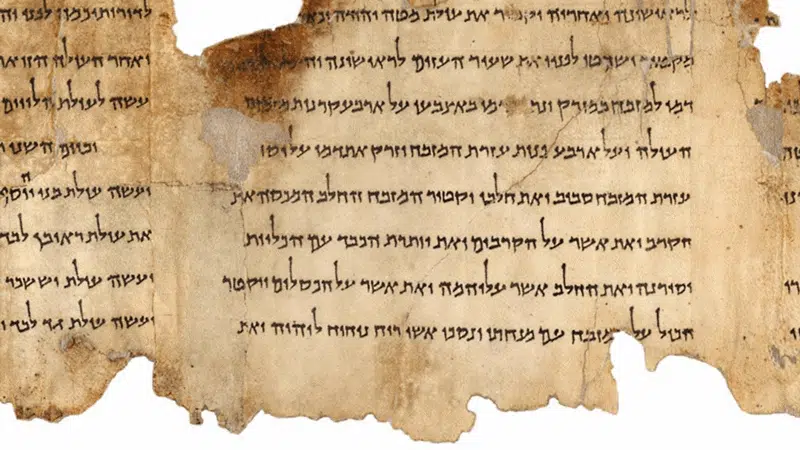The Christ Figure in The Brothers Karamazov
Last year I began a quest to read the books I’ve never really made time to read. I’m a slow reader so it takes a while to get through doorstops like Les Misérables and The Count of Monte Cristo, but it has been so rewarding. I have to confess, intimidation sets in when I begin a 1033 page novel. And those names! Smerdyashchaya! I’m so glad I’m just Tullos.
So often as I read these legendary tomes, I’m reminded that the nature of Christ is usually found hiding in the plot lines, heroes, and minor characters.
In Fyodor Dostoevsky’s masterpiece The Brothers Karamazov, the character of Lizaveta Smerdyashchaya (Russian Meaning-“the stinking one”) appears briefly yet leaves a profound impact on the story. Though easily overlooked, this mute, mentally disabled young woman embodies many Christ-like qualities that illuminate Dostoevsky’s complex exploration of faith, suffering, and redemption.
The Innocent Sufferer
Lizaveta, much like Christ, is defined by her innocent suffering. Described as a homeless woman who wanders the town barefoot in all seasons, her very existence is characterized by deprivation and hardship. Despite her circumstances, she remains gentle and harmless – a pure soul in a corrupt world. Christ’s words “Blessed are the poor in spirit” find literal embodiment in Lizaveta, who possesses nothing yet maintains a spirit untainted by the world’s corruption.

Her rape by Fyodor Pavlovich Karamazov, resulting in the birth of Smerdyakov, parallels Christ’s suffering at the hands of a sinful world. Lizaveta does not resist or condemn her attacker but bears her suffering silently – reminiscent of Isaiah’s prophecy about the Messiah: “He was oppressed and afflicted, yet he did not open his mouth.”
The Holy Fool

Dostoevsky draws upon the Russian Orthodox tradition of the “holy fool” in his portrayal of Lizaveta. In Russian spiritual tradition, these individuals were considered blessed by God despite, or perhaps because of, their mental disabilities. They were thought to possess a special connection to the divine precisely because they lacked the intellectual capacity for deceit or malice.
Christ himself embraced this paradoxical wisdom when he said, “I praise you, Father… because you have hidden these things from the wise and learned, and revealed them to little children.” Lizaveta, in her simplicity and inability to speak, embodies this divine foolishness that transcends human understanding.
I’m reminded of the very end of Salinger’s Franny and Zoey:
“But I’ll tell you a terrible secret- Are you listening to me? There isn’t anyone out there who isn’t Seymour’s Fat Lady. That includes your Professor Tupper, buddy– Don’t you know that? Don’t you know that secret yet? And don’t you know who the Fat Lady really is?…Ah, buddy. Ah, buddy. It’s Christ Himself. Christ Himself, buddy.”I’m also reminded of the Rich Mullins Lyric:
Birds have nests, foxes have dens
But the hope of the whole world rests on the shoulders of a homeless man
You had the shoulders of a homeless man
You did not have a home
Bearer of Sin
Perhaps most significantly, Lizaveta bears the sin of others without complaint. Her pregnancy with Smerdyakov – the product of Fyodor’s lust and cruelty – becomes a physical manifestation of bearing another’s sin within her own body. (To fully appreciate the weight of the sin, you’ve got to get to know the character, Fyodor. He’s a piece of work.) This directly parallels Christ, who “bore our sins in his body on the cross” (1 Peter 2:24).
Her death during childbirth further strengthens this parallel – she literally gives her life to bring forth new life, even as that new life (Smerdyakov) will ultimately contribute to the novel’s central tragedy. This sacrificial death echoes Christ’s words: “Greater love has no one than this: to lay down one’s life for others.”
The Rejection of Worldly Status
Christ frequently emphasized the reversal of worldly status in the Kingdom of God: “The last will be first, and the first will be last.” Lizaveta, who occupies the lowest possible social position in the novel – homeless, disabled, and ultimately a victim – becomes spiritually significant precisely because of her lowliness.
The townspeople’s treatment of her reflects the world’s rejection of Christ. While some show her kindness, others mock or exploit her vulnerability. Yet in Dostoevsky’s moral universe, her value is infinitely greater than those who dismiss her. As Christ taught, “Whatever you did for one of the least of these brothers and sisters of mine, you did for me.”
The Shadow on the Divine
Though Lizaveta appears only briefly in the novel’s timeline, her spiritual presence looms large. Her son Smerdyakov becomes a key figure in the novel’s central murder, creating a tragic irony: the offspring of this Christ-like innocent becomes an instrument of the novel’s greatest evil.
This paradox reflects the Christian understanding that Christ’s suffering does not immediately eradicate sin from the world but rather provides the means for its ultimate redemption. Lizaveta’s brief life and tragic death do not immediately transform the corrupt world of Skotoprigonyevsk, yet her presence serves as a moral touchstone against which the novel’s other characters can be measured.
Dostoevsky, incredibly positions this minor character of Lizaveta to embody profound theological truths. So far, for me, it’s been the character I can’t escape. Perhaps because there are shadows of the great divine in this part of the story. In her innocence, suffering, and silent bearing of others’ sins, she reflects Christ’s nature in ways that more articulate or powerful characters cannot.
I believe, (not a Russian literature expert) the inclusion of this Christ figure in the form of a disabled, impoverished woman reveals Dostoevsky’s radical understanding of Christianity – one that locates divine presence not in worldly power or intellectual sophistication, but in the most vulnerable and overlooked members of society. Through Lizaveta, Dostoevsky reminds us that redemption often comes from unexpected places, and that those whom society deems worthless may be vessels of divine grace.
Her story challenged me to recognize the sacred dignity in all human beings, regardless of their abilities or social status – a message as relevant in our time as it was in Dostoevsky’s Russia.
Ah Buddy, It’s Christ, Himself!
Note: The image is from my bookshelf. I’m building a library of classics from The Everyman’s Library. It’s a little newly acquired hobby.


